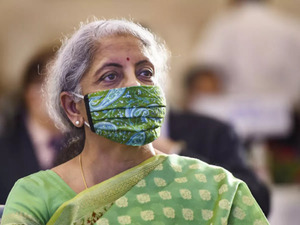The theme of ‘Mental Health in an Unequal World’ for the upcoming World Mental Health Day 2021 on October 10 underlines the pressing need to focus sufficiently on health beyond the physical in a sustained way in a world still struggling to fight the coronavirus. The COVID-19 pandemic has increased inequalities in human development, including dealing a double whammy to mental health by causing more incidence of mental disorders and disrupting already limited mental health services.
While health is complete physical, mental and social well-being and not merely the absence of disease, mental health is a state of well-being in which the individual realises his or her own abilities, can cope with the normal stresses of life, can work productively, and make a contribution to the community, according to the World Health Organization (WHO).
Even before COVID-19, mental disorders of varying severity affected one in seven Indians. It adds up to about 200 million or 20 crore people having mental disorders in the country, according to the Global Burden of Diseases, Injuries, and Risk Factors Study (2017). Nearly 80% of those suffering from mental disorders do not receive treatment for years, according to the National Mental Health Survey (NMHS). Mental health disorders are also accompanied by stigma, thereby affecting education and livelihood opportunities.
What is even more worrying is that there is a correlation between the prevalence of mental disorders and suicides. Indians account for more than one-fourth of deaths by suicide globally. Mental disorders have other far reaching consequences, too, like causing premature mortality. The Sustainable Development Goal (SDG 3) on good health and wellbeing focuses on mental health thrice.
Understandably, these figures have wide implications. WHO estimates the total burden of mental health problems in India at 2,443 disability-adjusted life years (DALYs) per 1,00,000 population. DALYs is “the sum of the years of life lost due to premature mortality and the years lived with a disability (YLDs) due to prevalent cases of the disease or health condition in a population”. The economic loss due to mental health conditions in India, between 2012 and 2030 is estimated at $1.03 trillion, according to WHO.
Given the magnitude of the challenge, our response is inadequate. India’s health budget is low and even lower budget line is earmarked for mental health. The government’s total expenditure on mental health is about Rs 600 crore, including Rs 40 crore for flagship National Mental Health Programme (NMHP).
The low budgetary allocation is reflected in the state of our human resources. The total number of mental health professionals (government and non-government) is 25,312. The total number of mental health workers per 1,00,000 population is 1.93. The mental health workforce (rate per 100 000 population) comprises psychiatrists (0.29), other specialist doctors (0.15), mental health nurses (0.80), psychologists (0.07), social workers (0.06), occupational therapists (0.03) and other paid mental health workers (0.36).
Even these scarce resources are under increased pressure due to the pandemic. The disease, death of kith and kin and loss of income have caused mental health conditions or aggravated pre-existing conditions, even in some cases causing a spike in substance abuse. COVID-19 itself can also cause neurological and mental disorders, according to a new survey by WHO. A survey by the Indian Psychiatry Society too has noted that the pandemic affected the mental health of 20% more people.
In India, the Mental Healthcare Act, 2017 provides for access to mental healthcare as a right. The National Mental Health Policy guides the National Mental Health Programme. A national taskforce for the finalisation, implementation and monitoring of the psychosocial action plan for COVID-19 is already at work.
The Ministry of Health and Family Welfare has already released guidelines for prevention activities to address mental health issues caused by COVID-19. The guidelines focus separately on the general population, people living with mental disorders, and health-care providers to address mental health conditions. A national psychosocial behavioural multilingual helpline, KIRAN, too has been set up. The Manodarpan Initiative under the Atmanirbhar Bharat Abhiyan provides psychosocial support to the student community and related family members and teachers to ensure their well-being during COVID-19.
Such measures are welcome. At the same time given the enormity of the challenge, it is an apt time to reimagine our approach towards mental healthcare beginning with increasing the budgetary allocation. The COVID-19 pandemic is a timely inflection point.
Source: timesofindia.indiatimes.com









